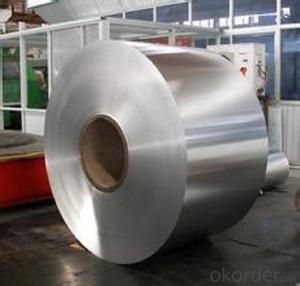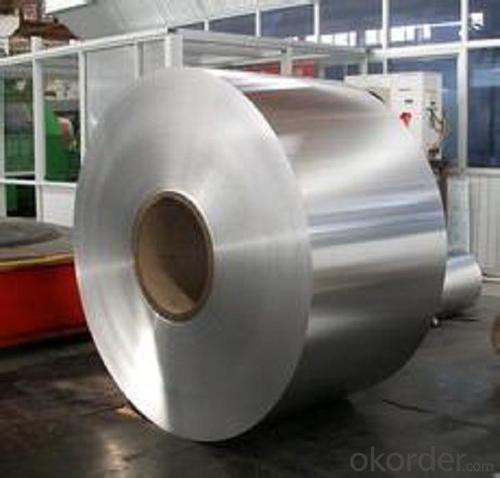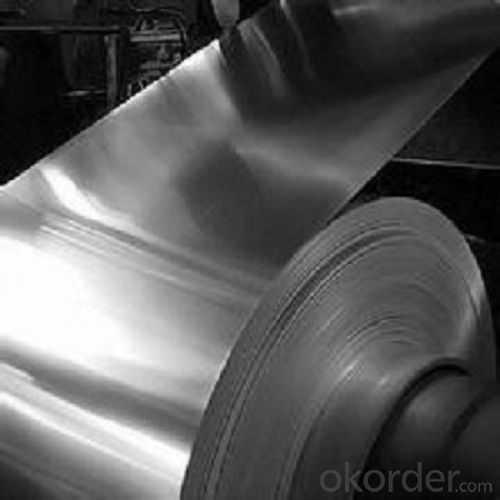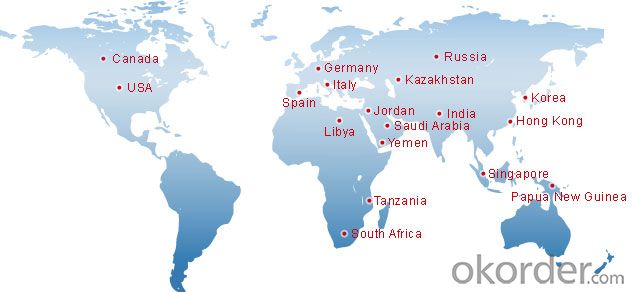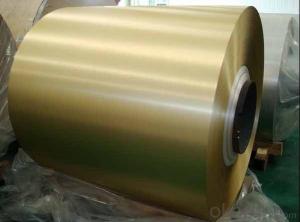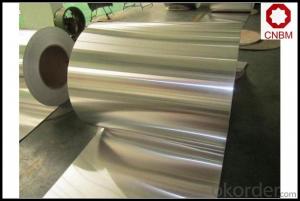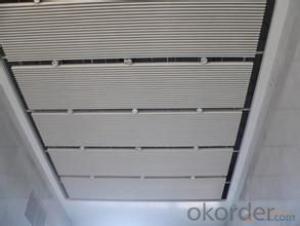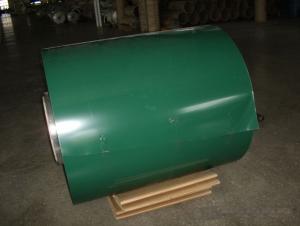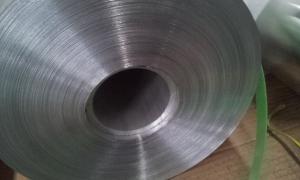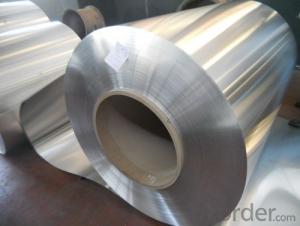Aluminum Coil Prices for Roll Coated Aluminum Hot Coil for Ceiling Panel
- Loading Port:
- Shanghai
- Payment Terms:
- TT OR LC
- Min Order Qty:
- 2.5
- Supply Capability:
- 5000 m.t./month
OKorder Service Pledge
OKorder Financial Service
You Might Also Like
Specification
Roll Coated Aluminum Hot Coil for Ceiling Panel
l Product Description
| Division | Description | Application | Feature |
| 1000 SERIES | 1050 1060 1070 1100 1235representative series aluminum plate is also known as pure aluminum, in the series in 1xxx series belongs to all the alumina quantity of a maximum number of series. Purity can achieve 99.00% above. | Utensil, decoration, Reflecting plate, printing plate, heatproof plate,cookware | Easy to process and weld,resistant to rust,high,conductibility of electricity and heat,low strength |
| 3000 SERIES | 3xxx series aluminum represents 3003 3004,3005, 3 A21 primarily. And can be called in the 3xxx series aluminum antirust aluminum production process more outstanding. The 3xxx series aluminum plate is by manganese as the main component. Content at 1.0-1.5 between. Is a rust-proof function better series. Conventional application in the air conditioning, the refrigerator, such as car in damp environment | Utensil(F/P, inside of rice cooker), aluminum can,material for interior and exterior of building,chemical equipment,Cellular Phone | 20% higher strength than the 1100 series, easily welded and brazed, good antirust,ability Non-heat treatable |
| 5000 SERIES | 5xxx series representatives 5052 5005 5083,5754. The 5000 series aluminum alloy aluminum belong to the more commonly used series, the main elements for magnesium, with magnesium in the amount between 3-5%. And can be called aluminum magnesium alloy. Key features for low density, high tensile strength, elongation rate is high. In the same area under the weight of the magnesium alloy aluminum less than other series. | Ship board heatproof apparatus, material for interior and exterior of building, Parts of Electronic tools.Automobile Components | Excellent corrosion resistance andweld ability together with Easy to process and weld and superior hardness &heatproof Can be anodized for increased corrosion resistance |
| 6000 SERIES | 6xxx series represents 6061 mainly contain magnesium and silicon of two elements, so focused on the 4000 series and the advantages of the 5000 series 6061 is a cold treatment aluminum forging products, apply to fight against corrosion, oxidizing demanding applications. | IT equipment & facility, Mould material, motor material, automatic line, machine & plant etc | Easy to process , good corrosion resistance, high toughness and processed without distortion after heat-treatable, superior surface treatment |
| 7000 SERIES | 7000 aluminum alloy is another common alloy, wide variety. It contains zinc and magnesium. The best strength in the common aluminum alloy is 7075 alloy, but it can't be welded, and its corrosion resistance is rather poor, many manufacturing parts with CNC cutting is 7075 alloy. | The aerospace industry & High strength accessories | 7000 series is high tensile to process with special alloy |
l Packaging & Delivery
Packaging detail: Standard seaworthy exporting carton, Wooden pallets, waterproof paper and plastic coverage or as customer's requirements
Delivery detail: about 25 days from received original L/C or advance payment
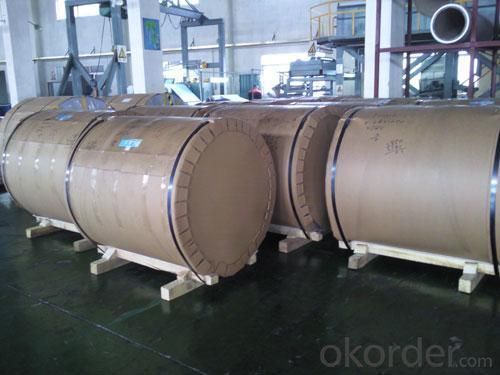
l Company Profile
CNBM International Corporation, China National Building Materials (Group) Corporation, is one of the largest companies in China building material & equipment industry, with 42,800 employees and sales in 2005 of US Dollar 4.395 billion. In 2006, China National Building Material Company Limited was listed on Hong Kong Stock Market with the stock code as 3323. |
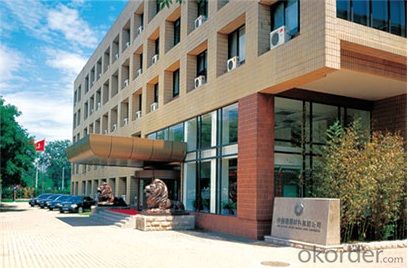
l CNBM World Wide
l Product Images
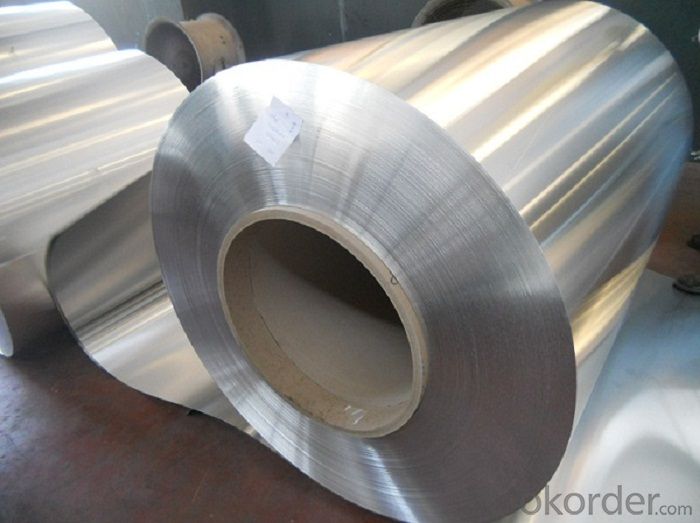
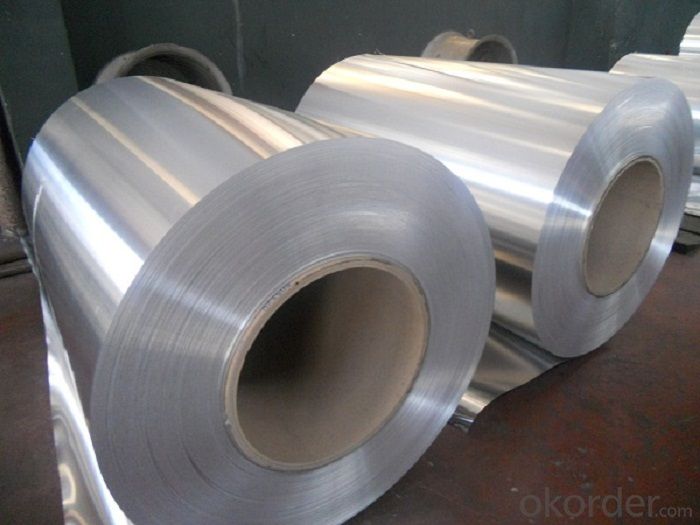
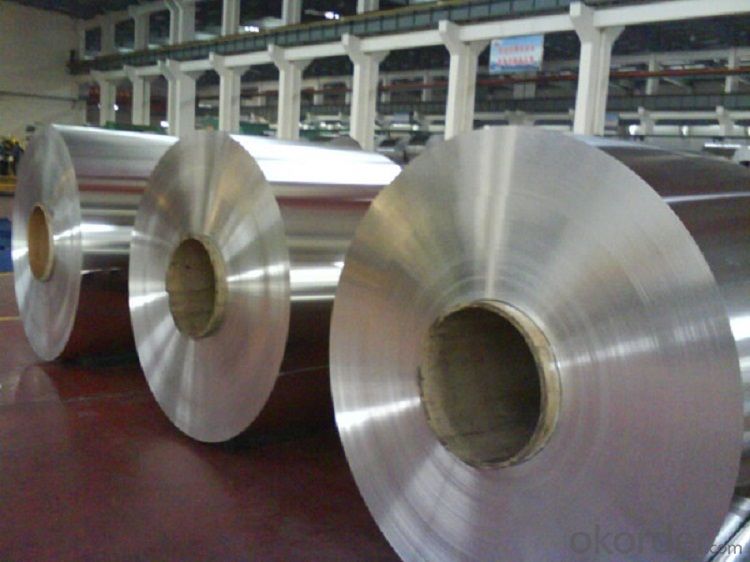
l Certificates
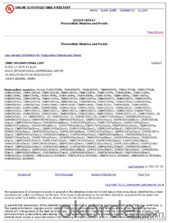
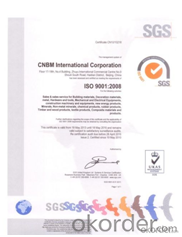
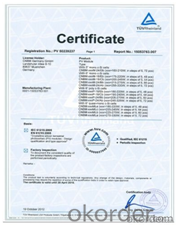
l FAQ
Q: Do you provide free samples?
A: Yes, free samples will be sent to you on freight at destination.
Q: Can I get your latest products catalogue?
A: Yes, it will be sent to you in no time.
Q: What is the MOQ?
A: 2.5 tons
Q: What are your payment terms?
A: We accept L/C, T/T
- Q: What do the two items (COIL:873347 HEAT: number) on the label of the raw material of aluminum coil stand for?
- COIL means aluminum coil and HEAT means heating, so together they mean hot rolled coil.
- Q: Are aluminum coils suitable for chemical processing applications?
- Yes, aluminum coils are suitable for chemical processing applications. Aluminum is known for its excellent corrosion resistance and high thermal conductivity, making it an ideal choice for various chemical processes. It can withstand different chemicals and acids, and its lightweight nature allows for easy handling and installation. Additionally, aluminum coils provide good heat transfer and can be easily formed into various shapes, making them versatile for different chemical processing requirements.
- Q: What is the average lifespan of an aluminum coil?
- The lifespan of an aluminum coil can differ depending on several factors, including the quality of the aluminum, the environment it encounters, and the level of maintenance and care it receives. Generally, aluminum coils are known for being durable and having a long lifespan. Typically, a properly installed and well-maintained aluminum coil can endure for 15 to 30 years. However, it is essential to note that this is merely an average estimation, and some coils may last even longer if properly cared for. Various elements can impact the longevity of an aluminum coil, such as exposure to severe weather conditions like extreme heat, cold, or humidity, as well as exposure to corrosive substances or chemicals. Consistently cleaning and maintaining the coil, including the removal of debris and addressing any signs of damage or wear, can also assist in extending its lifespan. To summarize, the average lifespan of an aluminum coil usually ranges from 15 to 30 years, but it is crucial to consider multiple factors that can influence its durability. Regular maintenance and appropriate care can significantly prolong the lifespan of an aluminum coil.
- Q: Can aluminum coils be painted for custom designs?
- Yes, aluminum coils can be painted for custom designs. Aluminum is a versatile material that can be coated with various paints and finishes, allowing for a wide range of custom design options.
- Q: Briefly describe the process of aluminum production from bauxite. Describe the electrolyte and write the anode and cathode half-reactions.
- Bauxite is purified by washing with sodium hydroxide and then seeding with dry ice. The purified aluminium oxide is then dissolved in molten cryolite at 900 degrees C (the electrolyte). It is electrolysed with grapite anodes and a graphite cathode that acts as the vessel for the reaction. Anode; 2 O2- - O2(g) + 4e Cathode: Al3+ + 3e - Al(l)
- Q: What are the maintenance requirements for aluminum coils?
- The maintenance requirements for aluminum coils primarily involve regular cleaning and inspection to ensure optimal performance and longevity. It is recommended to clean the coils at least once a year, or more frequently in areas with high pollution or corrosive environments. This can be done by using a mild detergent or coil cleaner and a soft brush or cloth to remove any dirt, dust, or debris that may have accumulated on the surface of the coils. Additionally, it is important to inspect the coils regularly for any signs of damage, corrosion, or leakage. Any bent fins, dents, or corrosion should be addressed promptly to prevent further damage and maintain the efficiency of the coils. If there are any signs of leakage, it is crucial to have a professional technician inspect and repair the coils to avoid any potential refrigerant leaks. Moreover, it is advisable to keep the area around the coils clean and clear of any obstructions that may obstruct airflow, such as leaves, plants, or debris. This will ensure proper airflow and prevent the coils from overworking, which can lead to inefficiency and potential damage. In conclusion, the maintenance requirements for aluminum coils involve regular cleaning, inspection for damage, corrosion, or leakage, and maintaining a clear and clean surrounding area for optimal performance and longevity. Following these maintenance practices will help ensure the efficient functioning of the aluminum coils and extend their lifespan.
- Q: How are aluminum coils coated for corrosion resistance?
- Aluminum coils are coated for corrosion resistance through a process called coil coating. Coil coating involves the application of a protective coating onto the aluminum surface to prevent it from corrosion caused by exposure to the environment. The first step in the process is the cleaning and pre-treatment of the aluminum coil. This is done to ensure that the surface is free from any contaminants, such as grease, dirt, or oxidation. The coil is typically cleaned using chemical cleaning agents and then rinsed to remove any residue. After cleaning, the coil is coated with a primer. The primer acts as a bonding agent between the aluminum surface and the subsequent coating layers. It enhances the adhesion of the topcoat and provides an additional layer of protection against corrosion. Once the primer is applied, the coil is then coated with a topcoat. The topcoat is usually a polymer-based paint that provides the desired color and appearance to the aluminum surface. It also acts as a barrier against moisture, UV radiation, and other environmental factors that can cause corrosion. The coating process can be done using various techniques, such as roll coating, spray coating, or coil painting. Each technique has its advantages and is chosen based on factors like cost, production speed, and the desired coating properties. In addition to the primer and topcoat, some aluminum coils may also receive a clear protective coating. This additional layer enhances the durability and longevity of the coated surface, providing an extra level of protection against corrosion. Overall, the coating of aluminum coils for corrosion resistance is a crucial step in ensuring the longevity and performance of the products made from these coils. The specific coating process and materials used may vary depending on the application and desired performance requirements.
- Q: How are aluminum coils used in signage and advertising?
- Aluminum coils are commonly used in signage and advertising as a durable and lightweight material for creating various types of signs. These coils can be easily shaped, cut, and bent to form letters, logos, and other designs. Their corrosion-resistant properties make them suitable for outdoor use, ensuring longevity and durability. Additionally, aluminum coils are often coated or painted to enhance their aesthetic appeal and provide a smooth and polished finish. This versatility and flexibility make aluminum coils a popular choice for creating eye-catching and long-lasting signs and advertisements.
- Q: I'm trying to cast aluminum using plaster and i was wondering if any one know how much the plaster has to be baked and how to tell if the plaster is dried fully and ways to do it. thx
- Plaster releases water at two points - in ordinary or accelerated drying it loses the water needed for setting and stops feeling cool and feels dry. If it is heated past 900F it loses chemically bound water and may fall apart. Aluminum melts at several hundred degrees higher than this and if the mold is intended to hold a mass of aluminum is is likely to destroy the mold. If the aluminum casting is fairly flat less of a problem. The common method for dealing with this is to add 50% silica flour (bad for lungs warning) to the dry plaster when making the mold. Then the mixed material mold can be used and preheated to take materials at least up to fused/molten glass, although the mold is commonly lost (not reusable) at these temps and just barely holds together.
- Q: Can aluminum coils be used in the production of architectural panels?
- Aluminum coils have the capability to be utilized in the manufacturing process of architectural panels. Aluminum is a multifunctional material that is extensively employed in the construction sector because of its lightweight nature, durability, and resistance to corrosion. By rolling aluminum ingots into thin, flat sheets, aluminum coils provide a practical and effective means of producing architectural panels. Architectural panels, including aluminum composite panels (ACP) or solid aluminum panels, are commonly adopted as cladding systems for buildings. These panels serve both functional and aesthetic purposes by providing protection against the weather, insulation, and enhancing the overall appearance of the structure. Aluminum coils are implemented in the production of architectural panels due to their ease of forming and shaping into various designs, such as flat sheets, corrugated panels, or custom profiles. The coils can be cut to the desired size and then processed using various techniques, including bending, folding, punching, or welding, to create the desired shape and dimensions of the panels. Moreover, aluminum coils offer an extensive range of finishing options, such as anodizing, powder coating, or painting, which facilitates customization and improves the aesthetic appeal of architectural panels. These finishes not only provide a variety of color choices but also enhance the durability and resistance to weather of the panels. To summarize, the versatility, durability, and aesthetic options provided by aluminum coils make them a suitable choice for the production of architectural panels. The use of aluminum coils in the construction industry has gained popularity due to their cost-effectiveness and efficiency in creating high-quality panels that meet the functional and design requirements of modern architecture.
Send your message to us
Aluminum Coil Prices for Roll Coated Aluminum Hot Coil for Ceiling Panel
- Loading Port:
- Shanghai
- Payment Terms:
- TT OR LC
- Min Order Qty:
- 2.5
- Supply Capability:
- 5000 m.t./month
OKorder Service Pledge
OKorder Financial Service
Similar products
Hot products
Hot Searches
Related keywords
